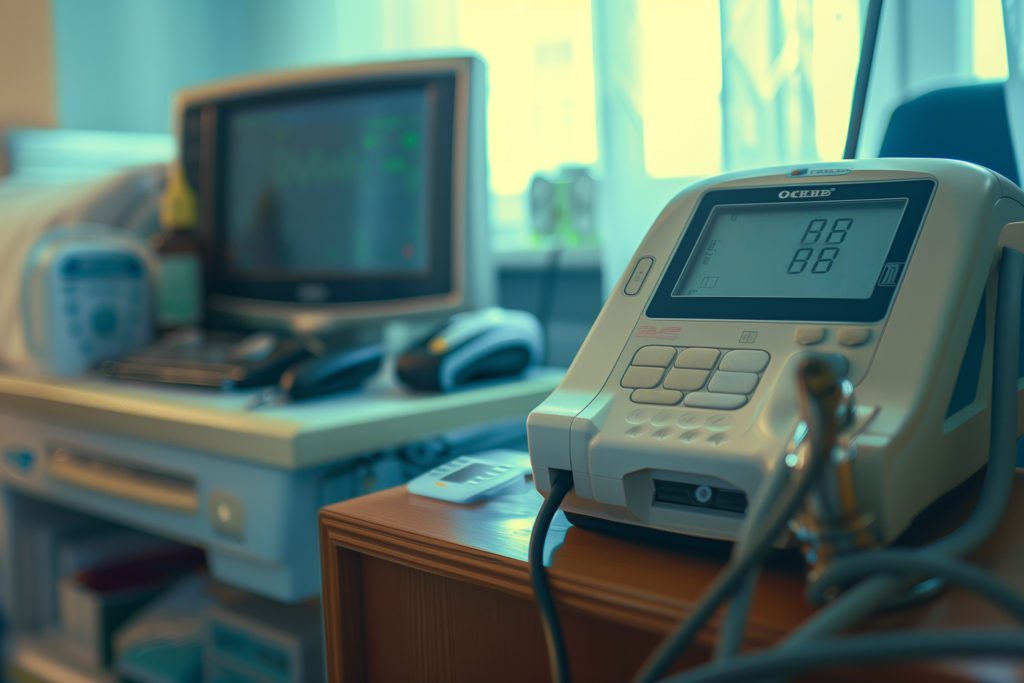
Is Bad Sleep Causing Elevated Blood Pressure?
Sleep plays a crucial role in maintaining our overall health, and its quality can significantly affect various aspects of our well-being, including blood pressure.

High blood pressure, or hypertension, is a common condition that can lead to serious health problems like heart disease and stroke if left unmanaged. This article explores the link between poor sleep and high blood pressure, shedding light on how sleep deprivation can affect cardiovascular health.
The Importance of Sleep for Heart Health
Sleep is not just a period of rest but a critical time for the body to repair and regulate various functions, including the cardiovascular system. During sleep, the body undergoes processes that help maintain healthy blood pressure levels. For instance, sleep regulates stress hormones, such as cortisol, which can influence blood pressure. A lack of quality sleep disrupts these processes, potentially leading to increased blood pressure and inflammation markers.
Research has consistently shown a correlation between sleep deprivation and elevated blood pressure. Research indicates that individuals who sleep less than six hours per night may have a higher risk of developing hypertension compared to those who get adequate sleep. This suggests that the quantity and quality of sleep are significant factors in managing blood pressure.
The Vital Role of Sleep in Regulating Blood Pressure
Sleep is a complex biological process that affects various aspects of our physiological health, including regulating blood pressure. During the deeper stages of sleep, the body experiences a natural decline in blood pressure, known as nocturnal dipping. This phenomenon is crucial for cardiovascular health, allowing the heart and blood vessels to rest and recover from the day's activities.
However, when sleep is disrupted or curtailed, this natural dipping process is affected, leading to higher blood pressure levels throughout the night and the following day. Studies have shown that individuals who consistently sleep less than six hours per night have a significantly increased risk of developing hypertension.
The Link between Poor Sleep and Elevated Blood Pressure
There are several critical biological mechanisms of how poor sleep causes high blood pressure. Disrupted sleep patterns and insufficient sleep duration can lead to increased sympathetic nervous system activity, which raises heart rate and constricts blood vessels, elevating blood pressure.
Additionally, poor sleep can disrupt the body's ability to regulate stress hormones, such as cortisol, which can further contribute to hypertension. The interplay between these factors and the resulting impact on blood pressure is critical for the occurrence of hypertension.
For instance, the reduction in slow-wave sleep, the deepest phase of non-REM sleep, has been associated with higher systolic and diastolic blood pressure levels, underscoring the importance of both sleep quantity and quality.
Furthermore, sleep deprivation can lead to endothelial dysfunction. In this condition, the blood vessels cannot dilate properly, contributing to increased vascular resistance and blood pressure. These mechanisms highlight the complex ways in which inadequate sleep can directly contribute to the development and exacerbation of hypertension, emphasizing the need for adequate sleep as a foundational pillar of cardiovascular health.
Understanding Sleep Disorders and Hypertension
Sleep disorders, such as insomnia and sleep apnea, are closely linked to hypertension. Obstructive sleep apnea (OSA), characterized by repeated breathing interruptions during sleep, is particularly noted for its strong association with high blood pressure. These interruptions lead to decreased blood oxygen levels and increased sympathetic nervous system activity, which causes the heart to work harder and raise blood pressure. All these factors cause elevated blood pressure.
The impact of sleep apnea on cardiovascular health cannot be overestimated, as untreated sleep apnea can significantly increase the risk of hypertension. This underscores the importance of diagnosing and treating sleep disorders to improve sleep quality and prevent hypertension.
Lifestyle Factors: The Role of Diet, Exercise, and Stress Management
Lifestyle choices are pivotal in the relationship between sleep and blood pressure. Diet, physical activity, and stress levels are all interconnected with sleep quality and cardiovascular health. Diets high in sodium and low in potassium can contribute to elevated blood pressure levels and disrupt sleep patterns. Regular physical activity has been shown to improve sleep quality and heart health, reducing the risk of hypertension.
Stress management is also crucial. Chronic stress can lead to sleep disturbances and elevated blood pressure. Techniques such as mindfulness, meditation, and deep breathing exercises can help mitigate stress, promoting better sleep and cardiovascular health.
Practical Tips for Improving Sleep and Reducing Blood Pressure
- Improving sleep quality can be a powerful tool in managing blood pressure. Here are some practical tips for better sleep:
- Establish a consistent sleep schedule: Go to bed and wake up simultaneously every day to regulate your body's internal clock.
- Create a restful environment: Ensure your bedroom is dark, quiet, and cool. Consider using earplugs, eye shades, or white noise machines if needed.
- Limit caffeine and alcohol intake: Both can interfere with your sleep cycle, especially when consumed before bedtime.
- Practice relaxation techniques: Engage in activities that promote relaxation before bed, such as reading, taking a warm bath, or practicing mindfulness exercises.
The evidence linking poor sleep to high blood pressure is compelling, highlighting the need for adequate sleep as a component of heart health. By addressing sleep disorders, making lifestyle adjustments, and adopting healthy sleep habits, individuals can significantly reduce their risk of hypertension. As research unravels the complex relationship between sleep and blood pressure, it becomes clear that good sleep is not just a luxury but also a necessity for maintaining optimal health.

Written by
Dr. Dusan Sekulic
Specializing in anesthesiology and intensive care, with experience working as a senior doctor on the cruise ship, I am skilled at navigating the complexities of managing various medical conditions, including hemodynamically unstable patients who need mechanical ventilatation. My expertise in airway management, resuscitation, and emergency medicine and intensive care is underpinned by a steadfast commitment to delivering unparalleled care, even in the most demanding of scenarios.
Download Pillow
Get help
Press & News
Legal
Connect
X (Twitter)
Company
Copyright © Neybox Digital Ltd.



